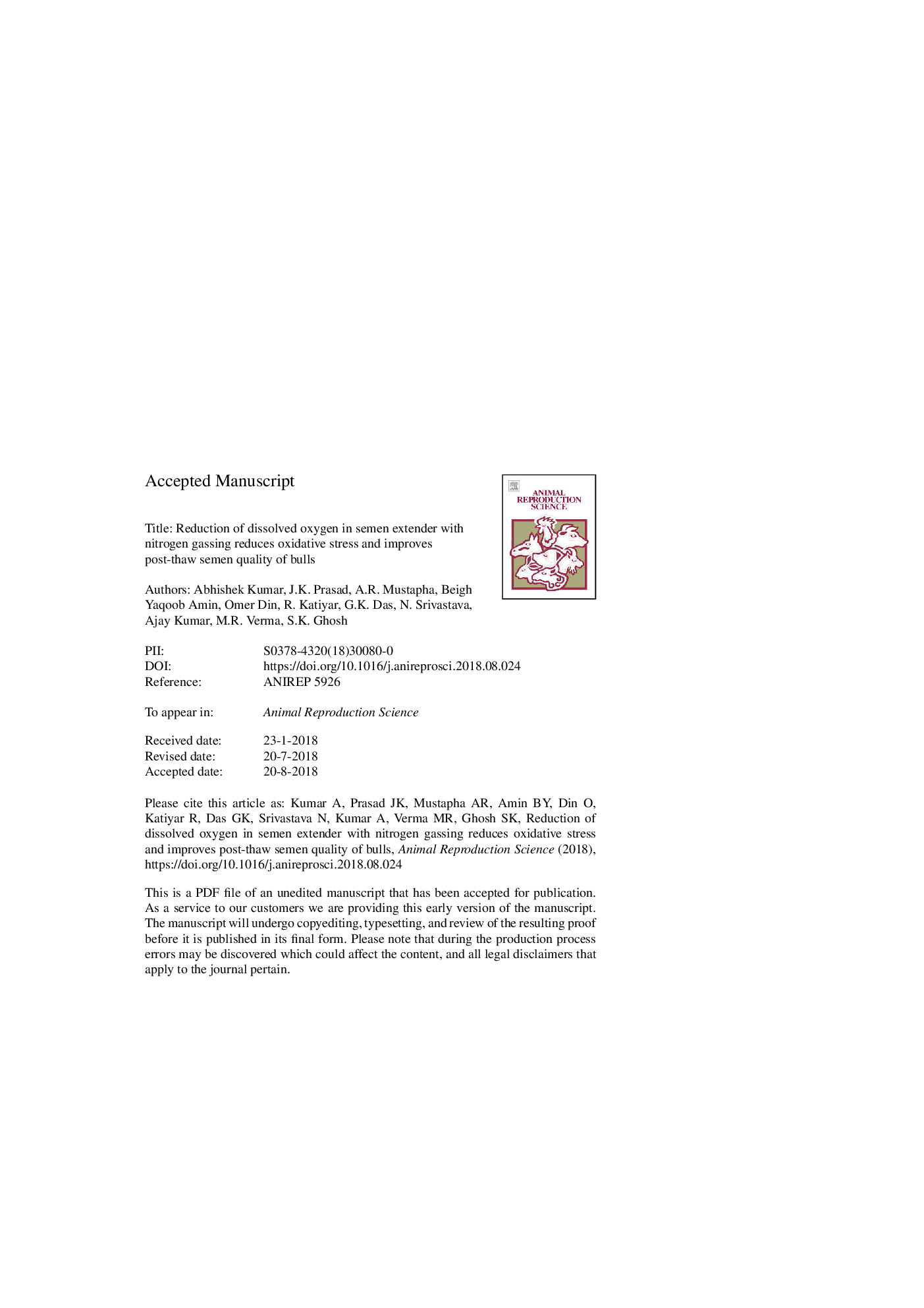| Article ID | Journal | Published Year | Pages | File Type |
|---|---|---|---|---|
| 10157358 | Animal Reproduction Science | 2018 | 37 Pages |
Abstract
The objective of the present study was to investigate the effects of two different concentrations of dissolved oxygen (DO, 4 and 8) ppm in the extender on oxidative stress affecting plasma membrane integrity (PMI), mitochondrial membrane potential (MMP), and deoxyribonucleic acid (DNA) damage of bull spermatozoa following cryopreservation. For the experiment, nitrogen (N2) gassing of the extender for varied time intervals yielded extender with DO concentration of 4âppm and 8âppm (Groups II and III, respectively). For the Control (Group I) without N2 gassing, a DO concentration of 11.7âppm was recorded. Following sample selection, ejaculates were divided into three aliquots and were extended to have 80âÃâ106 spermatozoa/mL of extender in the three groups. Semen samples were evaluated for reactive oxygen species (ROS), lipid peroxidation (LPO), total antioxidant capacity (TAC) and superoxide dismutase (SOD) at the fresh, pre-freeze, and post-thaw stages. Evaluation of PMI, MMP, and DNA damage were conducted on frozen-thawed samples. There were greater (Pâ<â0.05) increase in ROS and LPO and decrease in TAC concentrations in Group I than Groups II and III. Mean values of SOD at the post-thaw stage was greater (Pâ<â0.05) in Group II than Group I. There was a similar trend in the PMI in Groups II and III; MMP and DNA integrity in Group II was greater compared with Group I. In conclusion, results indicate there was a beneficial effect of maintaining DO concentrations at 4 rather than of 8 or 11.7âppm in extender for sustaining post-thaw semen quality.
Keywords
Related Topics
Life Sciences
Agricultural and Biological Sciences
Animal Science and Zoology
Authors
Abhishek Kumar, J.K. Prasad, A.R. Mustapha, Beigh Yaqoob Amin, Omer Din, R. Katiyar, G.K. Das, N. Srivastava, Ajay Kumar, M.R. Verma, S.K. Ghosh,
